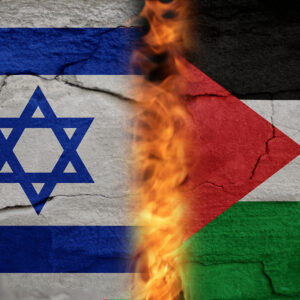Hamas may have attacked Israel to dislodge Arabic support for expanding the Abraham Accords. But much of the global community has rallied around Israel, while the Middle Eastern partners to the pact have vowed to prevent an escalation.
Israel, the United Arab Emirates (UAE), and Bahrain signed the Abraham Accords on September 15, 2000. It’s not a peace treaty, as those countries have never had hostilities. Indeed, they have long had informal trade ties. The entente expands those business ties and incorporates a security protocol as well.
International commerce is the cornerstone of world peace, opening diplomatic relations among nations and business interests. In the case of the UAE and Israel, billions of dollars are trading hands, cementing a lasting bond.
And now Saudi Arabia is ready to sign on. Oman, Morocco, and Kuwait could eventually follow suit. Together, they provide a defensive force against Iran, threatening regional stability.
“These countries have so many common interests,” said Bruce Gurfein, chief executive of the Dubai-based investment fund Connect LLC. “They started dating, and now their relationship is public.”
Gurfein, 47, is originally from New York City with strong Jewish ties to Israel. He has spent the last 28 years facilitating business deals amongst the Middle Eastern nations, noting that the Arabic countries have welcomed him with open arms.
The UAE and Israel have cooperated to deter aggression since 1991, but they are now open about it. As such, they exchange military intelligence and cyber defenses. Energy, too, is a vital component of the pact, potentially having the Israelis buy oil from the UAE. And Israelis love Dubai’s hotels and beaches.
President Joe Biden brought the Saudis on board, who seek security guarantees and to be an international business destination. Already, Israel buys metals and cement from the Saudis, who deploy Israeli cyber technology and drones for civilian use. Meantime, Crown Prince Mohammed bin Salman called the Hamas attack “an act of sheer evil.”
However, the Saudi educational system has ingrained its population with anti-Israeli sentiments. Biden, who seeks to repair U.S.-Saudi relations, explained that step one must include normalizing relations with Israel.
“I hope that Saudia Arabia and Israel take this slowly and make it a long-lasting relationship,” said Gurfein. “Give the people time to get to know each other. Let the business relationships get established.”
The executive asked a taxi driver what he thought of Saudi participation in the Abraham Accords, who responded that he is “officially” obliged to hate Israel. But, “unofficially,” he lamented that hatred of others is not in his blood. No doubt, it will take time to change the broader Saudi mindset.
It’s doable. Consider that Saudi women have traditionally been subservient to men. But women are now permitted to run businesses, and they are responsible for 70 percent of the start-ups in the country — unheard of five years ago.
Egypt and Jordan also have economic links to Israel. Israel exports about $236 million worth of goods to Egypt, while Israel buys agricultural and chemical products from Egypt. Meantime, Israel provides Jordan with 50 million cubic meters of water annually while Jordan exports solar power to Israel.
It’s hard to hate someone after shaking their hand and fulfilling promises.
Are these business and economic ties strong enough to overcome the threat of war? None of the agreements relegates the Palestinian cause and a potential two-state solution where Israel exists peacefully with Palestine. The treaty only enhances that possibility, allowing all sides to voice their concerns at the highest levels. The Palestinians are not an afterthought.
The Abraham Accords could come undone for a variety of reasons. But don’t underestimate the economic and security considerations driving an expansion of the deal — a force that should overpower all political obstacles.

